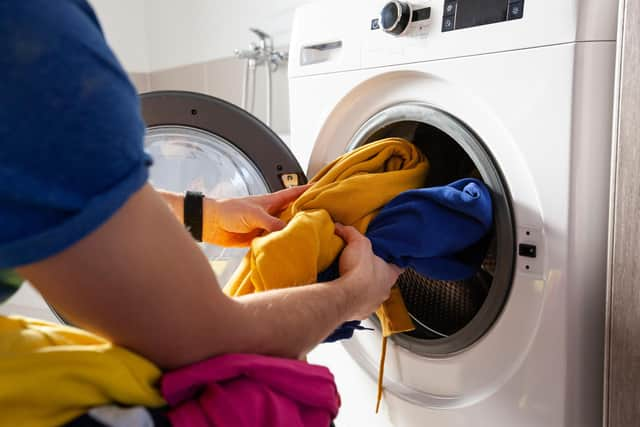Going Green: Get rewarded for not doing your washing


Yes, this is true. Energy companies are increasingly paying customers, like you and me, actual money into our accounts simply for not turning appliances on at home during certain times of the day.
The initiative, called Demand Flexibility, incentivises switching electricity use to off peak times of the day to earn you money. Peak times consist of late afternoon to early evening. It’s when the national grid is closest to its capacity and the time when they have to fire up the expensive and polluting electricity generators that cause the most environmental damage to keep supply up with demand.
Advertisement
Hide AdAdvertisement
Hide AdIt’s in essence the time of day we all get home, switch on the telly and the kettle and maybe the oven to start the kids’ tea while getting the day’s washing on.


Demand rockets because we’re all at home needing electricity for a multitude of things at roughly the same time.
The idea is, instead of paying power stations to meet high demand, the energy suppliers pay us some of that money instead, to delay when we switch non-essential things on at home.
It's worth mentioning though, it’s only a few times a month this happens and normally only in the winter.
Advertisement
Hide AdAdvertisement
Hide AdThe good news is, research from the Centre for Sustainable Energy (CSE) suggests we could all make some much needed money in this cost of living crisis if we make some simple changes like switching the time of day we use our washing machines or charge our electric vehicles, or use our tumble dryers.


CSE is a charity and they’ve calculated that homes can be earning as much as £5 per hour (known as an episode in the scheme) for reducing their energy use at peak time.
You may remember the National Grid always used to advertise the many millions of kettles being turned on around the country during the advert breaks in Coronation Street’s Christmas Special or at the end of a real cliff-hanger episode of Eastenders. National Grid forecast when demand will be very high and then put out requests to help ‘balance’ the grid by reducing customer demand.
Researchers at CSE have also worked out the homes that can make the most from a DFS scheme are; homes with electric heating, homes with at least one adult and two or more children, with gas heating and homes with an electric vehicle (EV) that they charge up in peak times.
Advertisement
Hide AdAdvertisement
Hide AdRewards are calculated by your energy provider based on how much energy you ‘typically’ use during peak hours; this is recorded as a baseline.
The more you can reduce your electricity use during peak hours, the more you’ll earn, it’s as simple as that and the top earning appliances to switch time of use are: Electric car chargers, electric showers, electric hobs, dishwashers and tumble dryers. You can find out if you can join in by contacting your energy supplier.